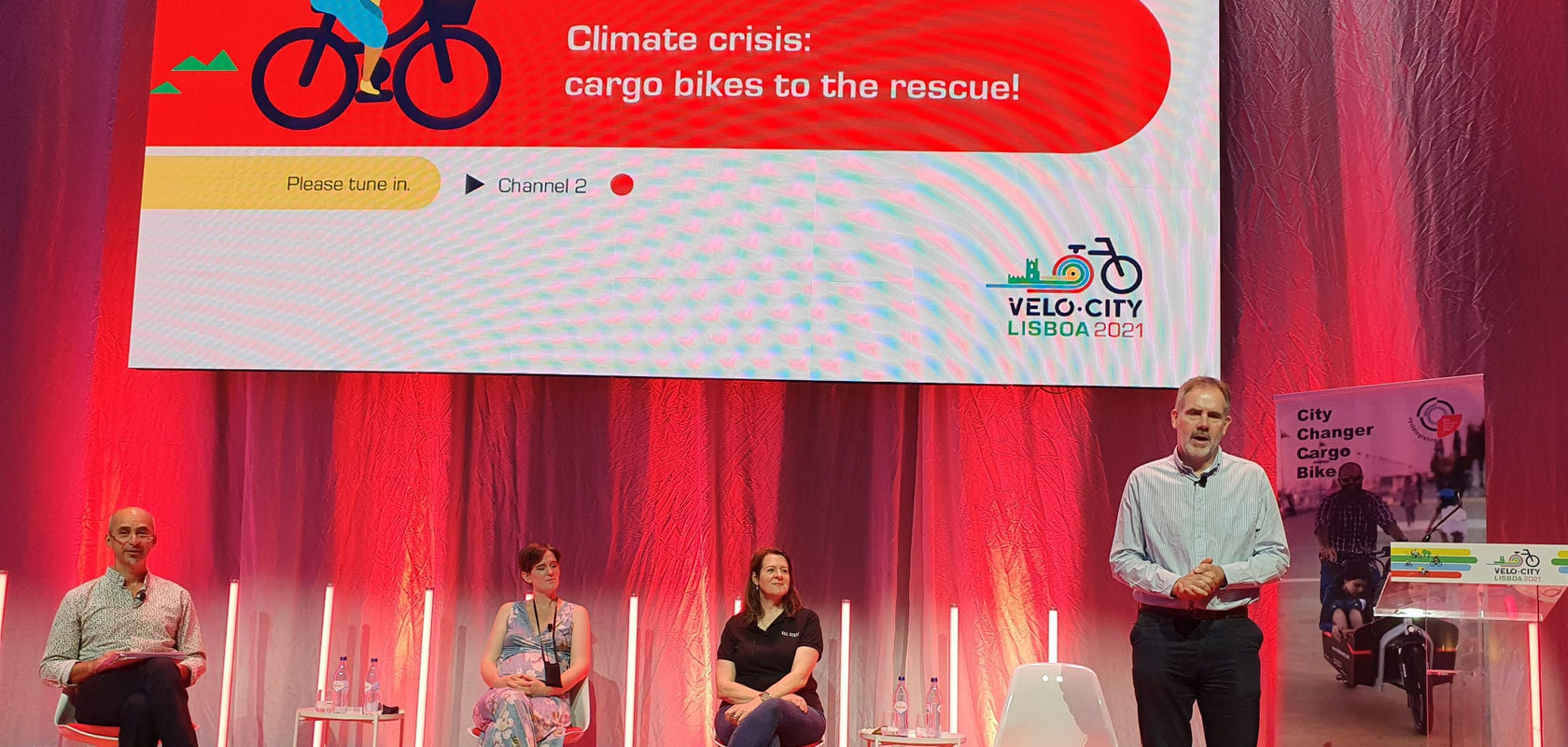Following the strong showing of cargo bikes at the Eurobike show just prior to Velo-City, and the on-going press and media coverage cargo bikes have received in recent months in major news publications such as the Guardian and the Financial Times, for many in the industry, 2021 has been labelled the year of the cargo bike.
For both personal and professional uses, and despite their not insignificant price tag, cargo bikes have seen exceedingly strong interest and demand from numerous sectors of the market. This demand is largely occurring in Europe and is being driven by both push and pull factors such as Urban Vehicle Access Regulations (UVARs) being implemented by many European cities to decarbonise the transport sector and improve air quality in cities, and generous incentives being offered by cities and regions for the purchase of a cargo bike (sometimes paired with an extra fiscal bonus if an older vehicle is simultaneously scrapped). Other factors such as COVID-19 and a broader shift in consumer behaviour away from the costs and frustrations associated with commuting by car in dense, urban environments are also driving this shift.
This momentum is only being reinforced at the EU level, with the recent inclusion of cargo bikes within the EU’s Sustainable and Smart Mobility Strategy, the guiding strategic document of EU transport policy up to 2030.
Cycling Industries Europe (CIE) has been active in this space for over two years now with its Changer Cargo Bike (CCCB) project. Through the support of the Horizon2020 programme, the CCCB project brings together a team of 20 partners from Norway to Greece, the United Kingdom to Bulgaria, and promotes the usage of cargo bikes among public, private, and commercial users. Learning from best practice across Europe, the initiative has been raising awareness and supporting the uptake of cargo bikes and cargo bike initiatives.
A dedicated CCCB session was held at Velo-city to focus on some of the successes and best practices that have been established thanks to this project. The session brought together Anna-Karina Reibold from the European Cyclist Federation, Gonçalo Pais from the Lisbon Municipality, Gary Armstrong from the European Cycle Logistics Federation and Agata Lewandowska from Gdynia Municipality in Poland. The session covered the genesis, goals and objectives of the project, and showcased some success stories from the cities where the project has been implemented. Adoption by local governments (as cited by Gary and Cambridge City Council’s use of cargo bikes to transfer internal documents amongst their offices), professionals (the city of Mechelen and its 52 entrepreneurs who have received a cargo bike subsidy), and families (Lisbon’s €3 million bicycle subsidy scheme for families, €500,000 earmarked for e-cargo bikes) were highlighted within the session.
In addition to this, another session on cargo bikes – “Climate Crisis: Cargo Bikes to the Rescue!” – brought together Charlotte de Broux from Bruxelles Mobilité – Brussel Mobiliteit, Irene McAleese of See.Sense, and Kevin Mayne from Cycling Industries Europe (CIE). The session dived into commercial applications of cargo bikes, with key highlights including Bruxelles Mobilité’s “Cairgo Bike” project which aims to create a cargo bike eco-system fit for small and medium sized business in Brussels, See.Sense’s work in support of SusTrans Scotland’s cargo bike library scheme, and how the data derived from this project can be used more broadly to scale-up cargo bike usage in Edinburgh, and CIE’s lobbying work at the European level to drive government support of cargo bikes for personal and commercial use in order to reach market estimates of 2 million cargo bike sales per year.
With so much momentum now being generated in the cargo bike space, a more accurate observation is more likely that 2021 is not only the year of the cargo bike, but rather the debut of the cargo bike decade!
Share on Linkedin Share on Facebook Share on Twitter Subscribe to our newsletter